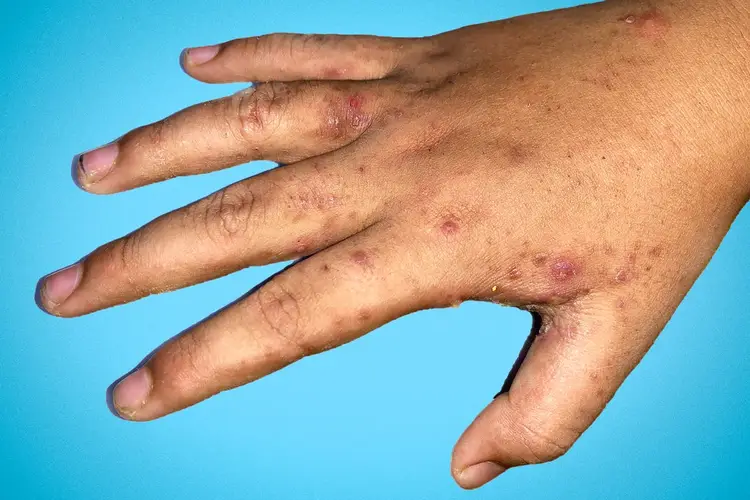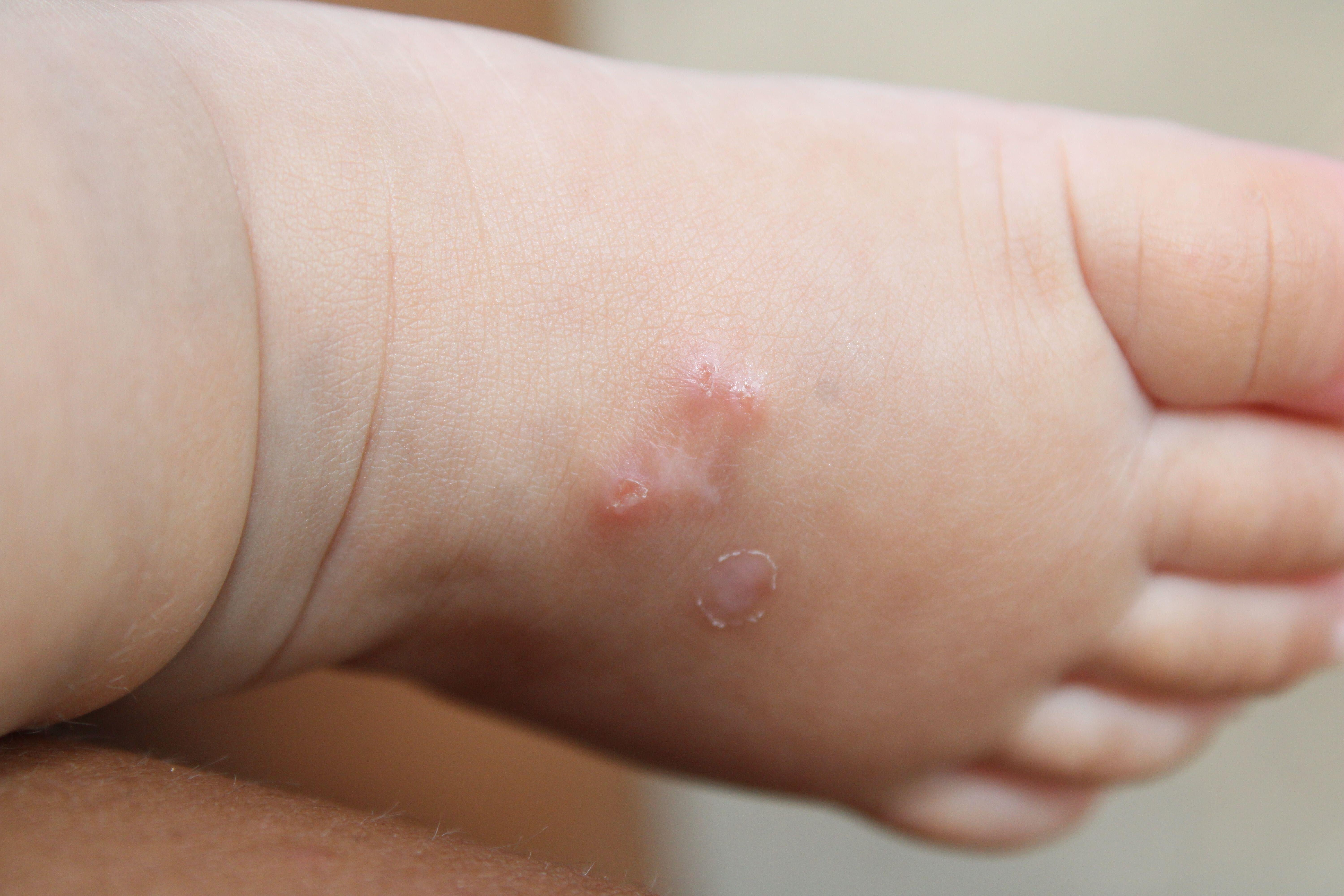GPs report rise in scabies as public warned not to ignore potential symptoms

Join Our Free Health Check Email For Insights!
Subscribe For Your Free Health Check Email!
Doctors in England have noticed an increase in scabies cases and are urging people not to overlook an itchy rash that might be due to this easily spread skin condition.

Scabies is caused by a tiny parasitic mite that digs into the skin and lays its eggs, leading to severe itching and the formation of blisters.
It spreads easily through direct skin contact or by sharing items like bedding, clothing, or soft furnishings. It can be rapidly transmitted in communal living situations, like nursing homes and college dorms, with symptoms generally showing up about four to six weeks after the infection occurs.
Professor Kamila Hawthorne, the head of the Royal College of GPs, informed the BBC that even though cases are still rare, the number of diagnoses made by GPs is currently “higher than the average over the last five years and increasing, particularly in the northern regions of England, where cases are on the rise.”
"Although scabies isn't a severe illness, it can cause significant itching and discomfort," she explained. "If left untreated, it can spread and heighten the chances of complications, like secondary skin infections or exacerbating pre-existing skin issues."
Professor Hawthorne commented, “We understand that patients might feel hesitant to pursue treatment due to the social stigma associated with this condition. However, it’s crucial for them not to overlook their symptoms, as doing so can exacerbate their situation and increase the risk of spreading the condition to others.”
NHS data shows that, in the year leading up to April, hospitals in England diagnosed 3,689 cases of scabies. This represents a 73 percent increase from the previous year, during which 2,128 cases were reported.
The World Health Organization estimates that around 200 million individuals around the globe are affected by scabies at any given moment.
A survey conducted by the British Association of Dermatologists revealed that eight out of nine of its regional representatives noted a rise in scabies cases last year. Additionally, all but two of these representatives indicated a lack of permethrin and malathion, which are the primary treatments for scabies in the UK.
An article in The Guardian attributed the shortages to issues in the supply chain and the ongoing conflict in Ukraine. Dermatologists have described the situation as a complete disaster, pointing out that there have been outbreaks in care facilities and student housing.
In January, Prof. Mabs Chowdhury, the president of the British Association of Dermatologists, expressed to the publication that the lack of available treatments for scabies is an issue that requires immediate focus.
The assessment of public health in this case is fairly straightforward: scabies is highly contagious, and if individuals do not receive treatment, the infection will persist and spread. A significant worry is the transmission of scabies in care facilities, college dormitories, and other shared living environments, which complicates the process of providing effective treatment.
"If just one person doesn't receive full treatment, it puts everyone at risk of getting reinfected. Considering the difficulties in social care and the lack of available treatments, health authorities must prepare for potential outbreaks in care homes."
In its recent report, the BBC interviewed students from five different universities who recounted several incidents that seemed to appear unexpectedly, leading to entire groups of students living together becoming sick.
Along with receiving treatment, which is most effective when done simultaneously with others you live with who are also infected, it is recommended for individuals with scabies to regularly wash their bedding and clothes at a high temperature to avoid getting reinfected.











































